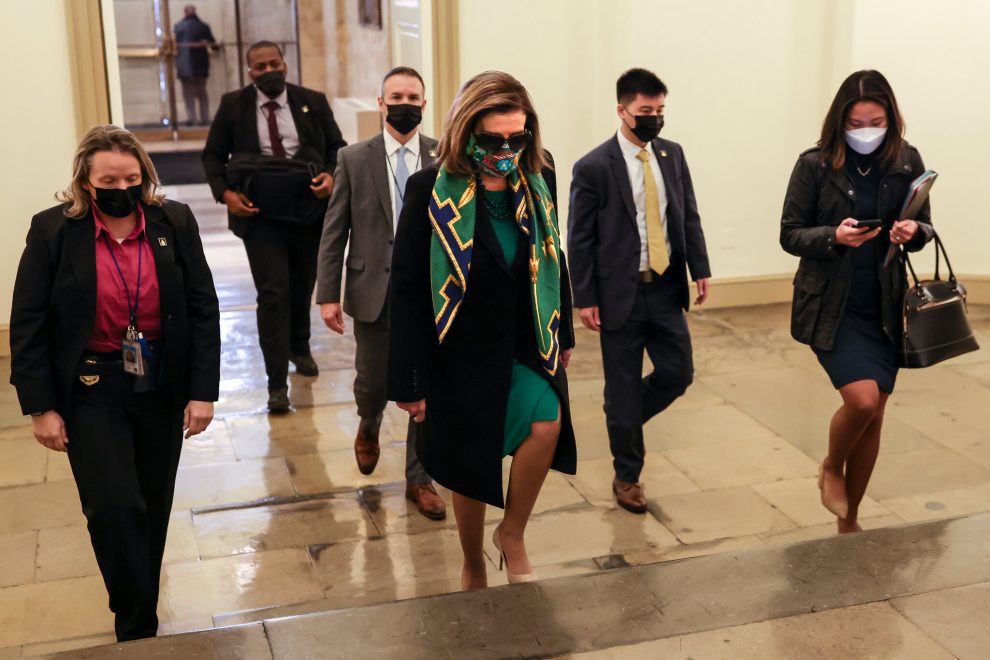Senate Democrats have reportedly decided to abandon an idea to increase the federal minimum wage through the House-passed $1.9 trillion stimulus bill, a decision that was made after some Democrats briefly considered enacting a work-around wage hike that would comply with the Senate’s complicated rules for passing the stimulus bill.
The Wall Street Journal, citing three people familiar with the matter, reported Sunday evening that Democrats will no longer seek to use tax penalties or other options to compel companies into paying a higher minimum wage. Two of the people familiar with the plan told the WSJ that the decision was made to get the bill passed more quickly.
According to The Washington Post, which cited two congressional aides, Senate Majority Leader Chuck Schumer (D-NY) was exploring Friday the idea of raising the wages through tax penalties, but it was unclear whether Democrats would support it.
Earlier this week, the Senate parliamentarian tossed cold water on President Joe Biden’s idea of passing a $15 minimum wage hike through the stimulus bill, saying that the wage hike as written didn’t follow the rules of the Senate reconciliation process. Democrats will need to rely on reconciliation, a maneuver with complex rules that involves fast-tracking legislation related to the budget, to pass a bill without Republican support.
House Speaker Nancy Pelosi (D-CA) still included the $15 minimum wage hike in the House-passed version of the legislation, dubbed the American Rescue Plan, and some lawmakers were exploring options for keeping a wage hike in a Senate version.
Senate Budget Committee Chairman Bernie Sanders (I-VT) announced Thursday that he would seek to write an amendment to the stimulus bill that would “take tax deductions away from large, profitable corporations that don’t pay workers at least $15 an hour.” Sanders also said that such an amendment would need to included in the reconciliation bill.
Senate Finance Committee Chairman Ron Wyden (D-OR) revealed a work-around plan, which he called “plan B,” in a statement Friday: “As chair of the Finance Committee, I’ve been working on a ‘plan B’ that would make big companies pay for mistreating their workers. My plan would impose a 5 percent penalty on a big corporations’ total payroll if any workers earn less than a certain amount. That penalty would increase over time.”
“America can’t continue to have millions of workers — workers who are disproportionately people of color and women, as well as essential workers like fast food workers and home health aides — earning starvation wages,” said Wyden.
The Washington Post, citing two sources on the condition of anonymity, has since reported that Wyden and Sanders are walking back the idea.
It’s not clear whether a work-around minimum wage increase would have garnered enough support among Democrats to pass in a Senate version of the bill. The House narrowly passed the legislation in a vote after midnight early Saturday morning 219-212, and two House Democrats ultimately voted against it. No Republicans voted in favor of it.
Story cited here.
























